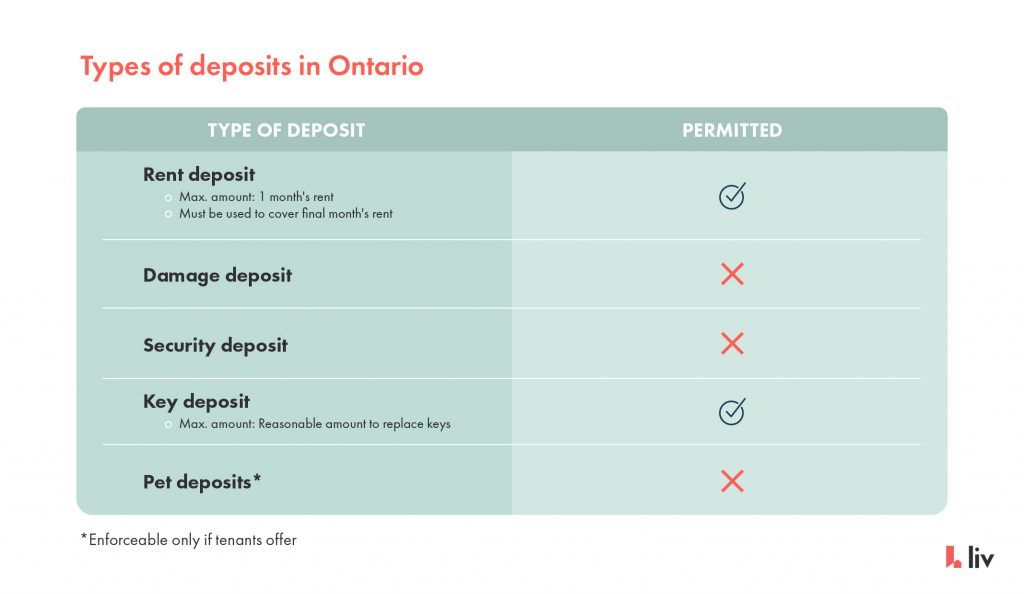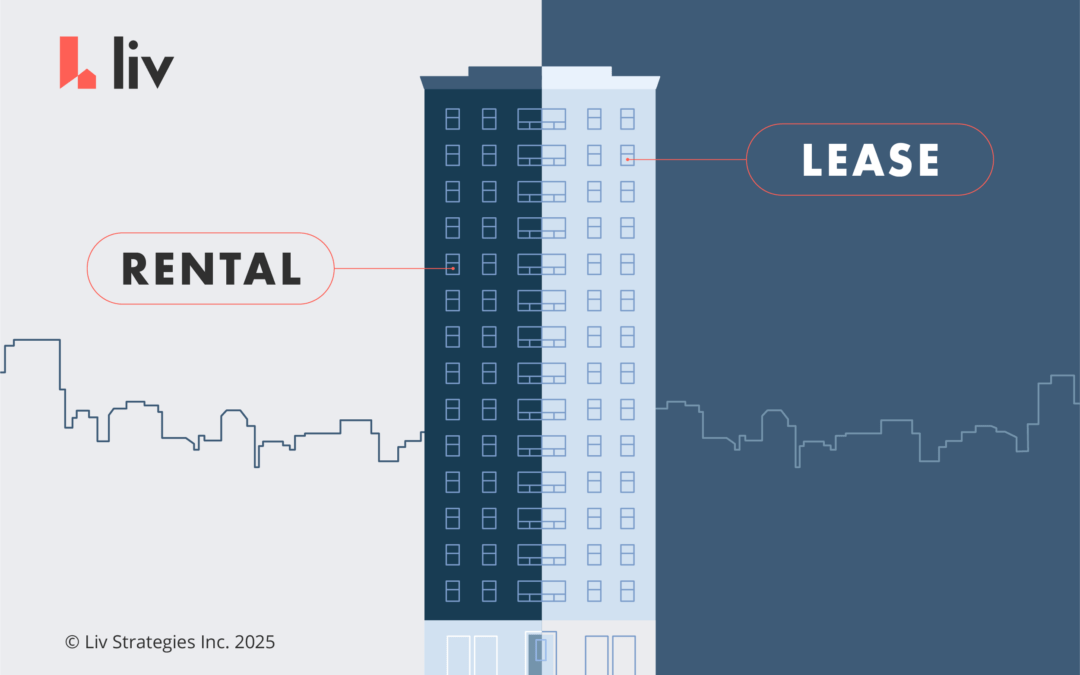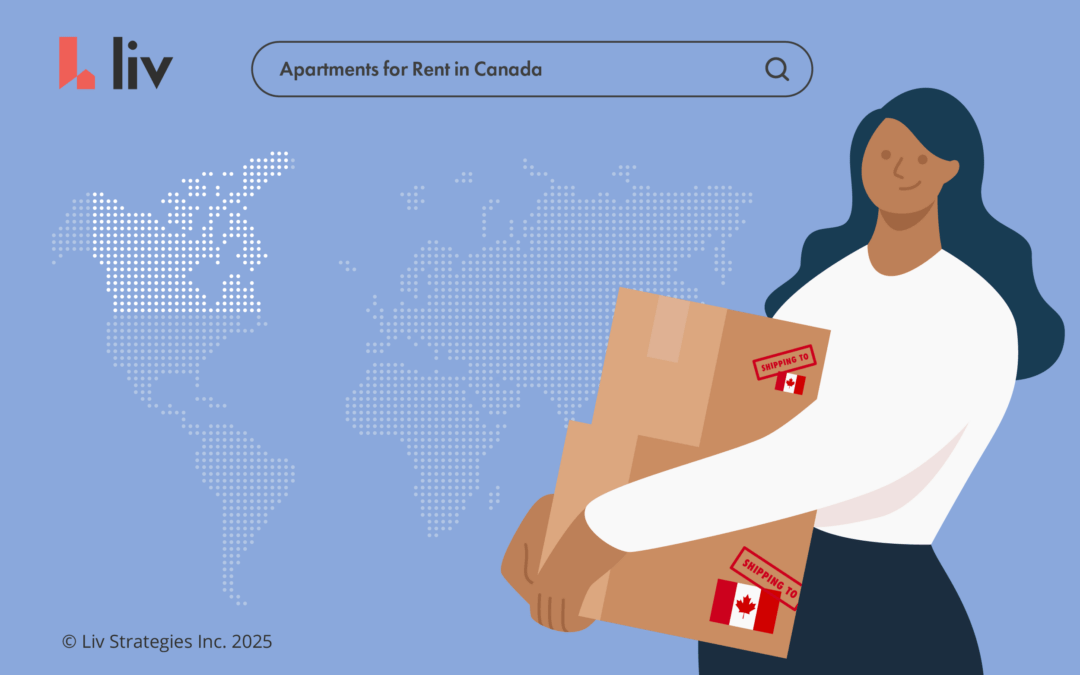For both renters and landlords in Ontario, rent deposits are at best a tricky subject to navigate, and can often lead to confusion and even money being lost down the line. There’s a ton of dubious information out there surrounding the subject, and it’s important for both parties to be aware of their rights and responsibilities when it comes time to submit their deposit. In this post, we provide an the most common questions surrounding Ontario rent deposits to help our readers make sense of what’s required of them.
Join Our Newsletter
For more info on rental laws and policies (e.g. eviction, lease agreements, repairs & maintenance), subscribe to get the latest news.
Rent deposit definition
A rent deposit in Ontario is a payment a landlord can legally collect to cover the last month’s rent of a tenancy. It cannot be used for damages or missed rent during the lease and must not exceed one month’s rent (or one week’s rent for weekly rentals).
Types of Ontario Rent Deposits

Renters in Ontario may see various kinds of deposits when searching for a place to rent in Ontario, and it’s important to know which of these are legally accepted and required of them. Let’s break it down quickly:
- Rent deposits – We’ve already covered these at length here, but this is the main type of deposit Ontario renters will be faced with. The maximum amount for this type of deposit is equivalent to one month’s rent, and can only be withheld as payment for the specified month.
- Key Deposits – Landlords in Ontario are also able to request a deposit for lost or damaged keys, in the event they need replacing. This amount shouldn’t exceed a reasonable cost for replacement, and tenants are able to request receipts to ensure a reasonable amount was taken.
- Damage Deposits – In Ontario, landlords are not legally allowed to collect damage deposits at the time of signing a tenancy agreement. If damages to the unit or building occur during your tenancy, the landlord is required to go through the Landlord and Tenant Board to seek payment.
- Pet Deposits – These are also illegal for landlords to collect under Ontario law.
- Deposits that exceed one month/week’s rent – Landlords in Ontario are only allowed to request a deposit equal to the amount owed for one period — either one month or one week, depending on the type of lease.
Is collecting first and last month’s rent legal in Ontario?
Whether you’re renting an apartment, a condo, a house, or any other type of residential property, landlords in Ontario are able to request both first and last month’s rent as a deposit – so long as they apply the first month’s sum as a payment for the first month of your tenancy. In fact, neither of these amounts are technically considered a deposit, as the landlord is only able to use the money as a payment for the last month of your tenancy, rather than to cover any damages.
After giving notice to end the tenancy, tenants will only need to pay the second-to-last month’s rent as the last month’s rent is already covered by the rent deposit.
Is a security deposit legal in Ontario?
Security deposits are not legal in Ontario under the province’s tenancy rules. The only acceptable forms of deposit in the province are a rent deposit, equal to one full month’s rent, which may only be used to cover the final month’s rent payment, as well as a key deposit if applicable.
While a rent deposit may sound similar to a security deposit, they function differently in that the landlord may not withhold any portion of the rent deposit for a purpose other than covering the last month’s rent. If there are charges for damages or cleaning, the landlord must apply to collect this amount via the LTB.
Key Deposits in Ontario?
Key deposits are legal in Ontario, provided they meet a couple of important conditions:
- The deposit must be a reasonable amount to cover the cost of replacing the keys
- The deposit is refundable
As soon as the tenant(s) return their keys, the landlord must also return the key deposit in full. If they do not return the keys, the landlord may withhold the deposit to cover the cost of replacing them.
Is a damage deposit legal in Ontario?
Ontario landlords cannot legally collect damage deposits at the beginning of the tenancy. Rent deposits and key deposits are the only permitted form of deposit in the province.
If damages to the unit or building occur during your tenancy, the landlord is required to go through the Landlord and Tenant Board to seek payment. In this instance, an adjudicator will determine how much is owed.
Pet Deposits in Ontario?
These are also illegal for landlords to collect under Ontario law. Deposits that exceed one month/week’s rent – Landlords in Ontario are only allowed to request a deposit equal to the amount owed for one period — either
one month or one week, depending on the type of lease.
How much is the Ontario rent deposit?
Under Ontario’s Residential Tenancies Act, the maximum amount landlords can request for a rent deposit in the province is one full month’s rent or the rent cost for one rental period.
Whichever amount is less is the maximum that tenants can be made to pay.
Can a landlord ask for a damage deposit in ontario?
No, in Ontario, a landlord cannot ask for a damage deposit. The Residential Tenancies Act only allows a rent deposit (equal to one month’s rent) to be used for the last month’s rent, not for damages or repairs.
Ontario Rent Deposit Receipt
One should always ask for a rent deposit receipt when paying the last month’s rent in Ontario, as it serves as proof of payment and confirms the amount and purpose of the deposit. This protects the tenant legally, helps avoid future disputes, and ensures transparency in the rental agreement. Importance of a Rent Deposit Receipt in Ontario:
✅ Proof of Payment: Confirms you paid the deposit and the amount.
✅ Clarifies Usage: Shows it’s specifically for last month’s rent (not damages).
✅ Legal Protection: Helps if there’s ever a disagreement or issue with the Landlord and Tenant Board.
✅ Transparency: Promotes trust and accountability between tenant and landlord.
It’s a reasonable and common request—just politely ask your landlord for a written receipt for your rent deposit.
What is the interest rate on rent deposits in Ontario?
In Ontario, landlords must pay the tenant interest on their rent deposit every 12 months, if collected. The percentage of interest paid will be the same as the yearly rent increase guideline, decided by the province of Ontario for each calendar year.
If the landlord doesn’t pay this interest, they may also reduce the amount needed to update the rent deposit so that it equals the current rent. Tenants may also withhold the interest amount from a future rent payment or file an application for a rebate if necessary.
Are rent deposits refundable in Ontario?
Rent deposits must always either be returned to the tenant in full, or used to pay for the final month’s rent. Landlords may not withhold any portion of the deposit to cover things like damage or cleaning.
Common Mistakes Landlords Should Avoid When Handling Ontario Rent Deposit?
Here are common mistakes landlords should avoid when handling Ontario rent deposits:
- Requesting More Than Allowed – Only one month’s (or one week’s) rent can be collected as a deposit, strictly for the last month’s rent.
- Using the Deposit Improperly – It cannot be used for damages, cleaning, or missed rent during the tenancy.
- Not Paying Interest – Landlords must pay annual interest on the rent deposit, as set by the Ontario government.
- Failing to Provide a Receipt – Always give a written receipt for the rent deposit to ensure transparency.
- Not Applying It to the Final Month – The deposit must be used for the last month of the tenant’s stay, not held beyond that.
FAQs: Rent deposits in Ontario
Are rent deposits legal in Ontario?
Yes, rent deposits are legal in Ontario so long as they are requested on or before the landlord and tenant enter into a tenancy agreement. If a landlord hasn’t requested a rent deposit before or at this time, they’re unable to ask for it during the course of your tenancy.
What happens if a landlord doesn’t return my deposit?
Normally, in the case of a last month’s rent deposit, this sum is not returned to the tenant but rather is used as payment for the final month of their tenancy. If the money isn’t used in this way, ask your landlord to return it. If they refuse, renters can call the Ontario Government’s Rental Housing Enforcement Unit which will seek out the deposit on their behalf. You can also apply to the Landlord and Tenant Board to order your landlord to return the deposit.
It’s important to note that landlords cannot demand damage deposits in Ontario, and can’t use your rent deposit to pay for any damage to the unit. Any amount to be paid for damages has to be requested independently of a rent deposit.
Can my landlord ask for three months’ rent as a deposit?
No. The amount requested for a rent deposit cannot exceed one month’s rent. As we mentioned above, the maximum a landlord can request from their tenant at the time of signing the tenancy agreement is first and last month’s rent. Both of these amounts are to be used as rent payments for their respective months.
Are landlords in Ontario allowed to demand post-dated cheques?
While the individual terms of a lease may vary, tenants are not legally obligated to provide post-dated cheques for rent payments, and landlords are not allowed to demand them. The same goes for direct debit payments. If the tenancy agreement specifies the use of either of these and the renter has signed, then that form of payment may be contractually required.
Can a landlord refuse to return my rent deposit?
No matter what the deposit was collected for, landlords in Ontario must return the amount or use it as payment for rent. In the case of key deposits, this amount is only to be used to replace lost keys, and the amount may not be larger than a reasonable cost to do so. As far as damages go, landlords are not legally able to use any deposit to cover any costs and must go through the Landlord and Tenant Board to seek out any money for damages.
For what reasons can a landlord keep my rent deposit in Ontario?
Landlords may keep your rent deposit only if it is agreed to be used as payment for your first and last month’s rent, or if they collected a key deposit and need to use it to replace any lost or damaged keys.
Can a landlord keep my rent deposit if I break my lease?
Generally, though, rent deposits in Ontario are only able to be used for their specified purpose, which is as payment for the final month of your tenancy. This means that landlords are not able to use this amount for any other purpose, such as a charge for breaking your lease early. They can, however, retain this amount as payment for your final month’s rent if you haven’t already paid it.
In any event, tenants should always be upfront with their landlord should they need to break a lease. Sometimes, things happen beyond our control, and the best way to avoid conflict and the potential loss of a rent deposit is to be honest about your situation and work to find a mutually agreeable solution.
Does my landlord have to pay interest on my rent deposit in Ontario?
Beginning January 1st, 2025, landlords may raise rent up to 3.5%. Your landlord can either add this amount to the deposit or opt to give it to you directly. This is done so that your deposit is still able to cover your last month’s rent regardless of the increase.
Do I have to pay for both my rent deposit and first month’s rent?
If that’s what is specified in your tenancy agreement, then yes. Landlords in Ontario are within their rights to ask for both the first and last month’s rent. This is because the first month’s deposit is immediately received as a payment. Landlord can hold deposit up to one month’s rent to be used at a later date.
Does my landlord have to provide receipts for a rent deposit?
Landlords in Ontario are obligated to produce receipts free of charge for any type of rent payment. Any type of rent deposit is included in this, as you’re technically paying for a month’s rent ahead of time. To avoid getting into trouble down the line, it’s always a good practice to request these receipts. Collect receipts when you’re negotiating your lease and paying your rent deposit or any other deposit.
Do I have to pay my last month’s rent deposit before signing a lease?
Landlords in Ontario are legally allowed to request a last month’s rent deposit before or as part of your tenancy agreement. However, as we’ve mentioned, this amount is only to be used for its specified purpose. If you pay for a rent deposit and later decide not to go forward with the lease agreement, that amount must be returned to you.
How is the rent deposit refunded in Ontario?
Landlords in Ontario must return the rent deposit to the tenant within 30 days of the tenant vacating the rental unit.
The landlord can only deduct from the deposit for unpaid rent, damage to the rental unit, and other costs associated with the rental agreement.
>> Recommended Reading: Applying For A Rental In Ontario Part 3: What Can A Landlord Ask For On A Rental Application In Ontario?




0 Comments